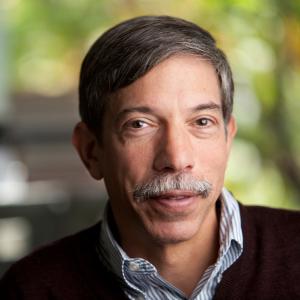- About
- Message from the Chair
- History
- Facilities
- News
- Events
- Info Sci Colloquium
- Advancing Responsible AI with Human-Centered Evaluation
- Bowers Distinguished Speaker Series - Julie E. Cohen, Georgetown University Law Center
- From Agents to Optimization: User Interface Understanding and Generation
- The Language of Creation: How Generative AI Challenges Intuitions—and Offers New Possibilities
- IS Engaged
- Graduation Info
- Info Sci Colloquium
- Contact Us
- Courses
- Research
- Computational Social Science
- Critical Data Studies
- Data Science
- Economics and Information
- Education Technology
- Ethics, Law and Policy
- Human-Computer Interaction
- Human-Robot Interaction
- Incentives and Computation
- Infrastructure Studies
- Interface Design and Ubiquitous Computing
- Natural Language Processing
- Network Science
- Social Computing and Computer-supported Cooperative Work
- Technology and Equity
- People
- Career
- Undergraduate
- Info Sci Majors
- BA - Information Science (College of Arts & Sciences)
- BS - Information Science (CALS)
- BS - Information Science, Systems, and Technology
- Studying Abroad
- MPS Early Credit Option
- Independent Research
- CPT Procedures
- Student Associations
- Undergraduate Minor in Info Sci
- Our Students and Alumni
- Graduation Info
- Contact Us
- Info Sci Majors
- Masters
- PHD
- Prospective PhD Students
- Admissions
- Degree Requirements and Curriculum
- Grad Student Orgs
- For Current PhDs
- Diversity and Inclusion
- Our Students and Alumni
- Graduation Info
- Program Contacts and Student Advising
Fred B. Schneider is Samuel B. Eckert Professor of Computer Science at Cornell University. He joined Cornell's faculty in Fall 1978, having completed a Ph.D. at Stony Brook University and a B.S. in Engineering at Cornell in 1975. Schneider currently also serves as the Chief Scientist for the NSF-funded TRUST Science and Technology Center, which brings together researchers at U.C. Berkeley, Carnegie-Mellon University, Cornell University, Stanford University, and Vanderbilt University.
Schneider's research has focused on various aspects of trustworthy systems --- systems that will perform as expected, despite failures and attacks. His early work concerned formal methods to aid in the design and implementation of concurrent and distributed systems that satisfy their specifications. He is author of two texts on that subject: On Concurrent Programming and (co-authored with D. Gries) A Logical Approach to Discrete Mathematics. He is also known for his research in theory and algorithms for building fault-tolerant distributed systems. His paper on the "state machine approach" for managing replication received (in 2007) an SOSP "Hall of Fame" award for seminal research. More recently, his interests have turned to system security. His work characterizing what policies can be enforced with various classes of defenses is widely cited, and it is seen as advancing the nascent science base for security. He is also engaged in research concerning legal and economic measures for improving system trustworthiness.
Schneider was elected Fellow of the American Association for the Advancement of Science (1992), the Association of Computing Machinery (1995), and the Institute of Electrical and Electronics Engineers (2008). He was named Professor-at-Large at the University of Tromso (Norway) in 1996 and was awarded a Doctor of Science honoris causa by the University of NewCastle-upon-Tyne in 2003 for his work in computer dependability and security. He received the 2012 IEEE Emanuel R. Piore Award for "contributions to trustworthy computing through novel approaches to security, fault-tolerance and formal methods for concurrent and distributed systems". The U.S. National Academy of Engineering elected Schneider to membership in 2011, and the Norges Tekniske Vitenskapsakademi (Norwegian Academy of Technological Sciences) named him a foreign member in 2010.
Schneider is a member of the Defense Science Board. He chaired the National Academies Computer Science and Telecommunications Board (CSTB) study on information systems trustworthiness that produced the 1999 volume Trust in Cyberspace. He also served as a member of CSTB from 2002-2008 and served from 2004-2007 on the CSTB study committee for improving cyber-security research. Schneider was a member of the NSF CISE advisory committee 2002-2006 and a member from 2007-2011 of the the Information Security and Privacy Advisory Board (ISPAB), which advises NIST, the Secretary of Commerce, and the Director of OMB on information security and privacy issues pertaining to Federal information systems. In Fall 2001, he chaired the United Kingdom's pentennial International Review of Research in Computer Science.
In 2007, Schneider was elected to the board of directors of the Computing Research Association (CRA) and appointed to the steering committee of CRA's Computing Community Consortium. And he now chairs the Government Affairs board of CRA.
Schneider is a frequent consultant to industry, believing this to be an efficient method of technology transfer and a good way to learn about the real problems. He is co-chair of Microsoft's Trustworthy Computing Academic Advisory Board, which comprises technology and policy experts who meet periodically to advise Microsoft about products and strategy. He also provides technical expertise in fault-tolerance and computer security to a variety of other firms. In addition, Schneider has testified about cybersecurity research at hearings of the US House of Representatives Armed Services Committee (subcommittee on Terrorism, Unconventional Threats, and Capabilities), as well as the Committee on Science and Technology (subcommittee on Technology and Innovation and subcommittee on Research and Science Education).



